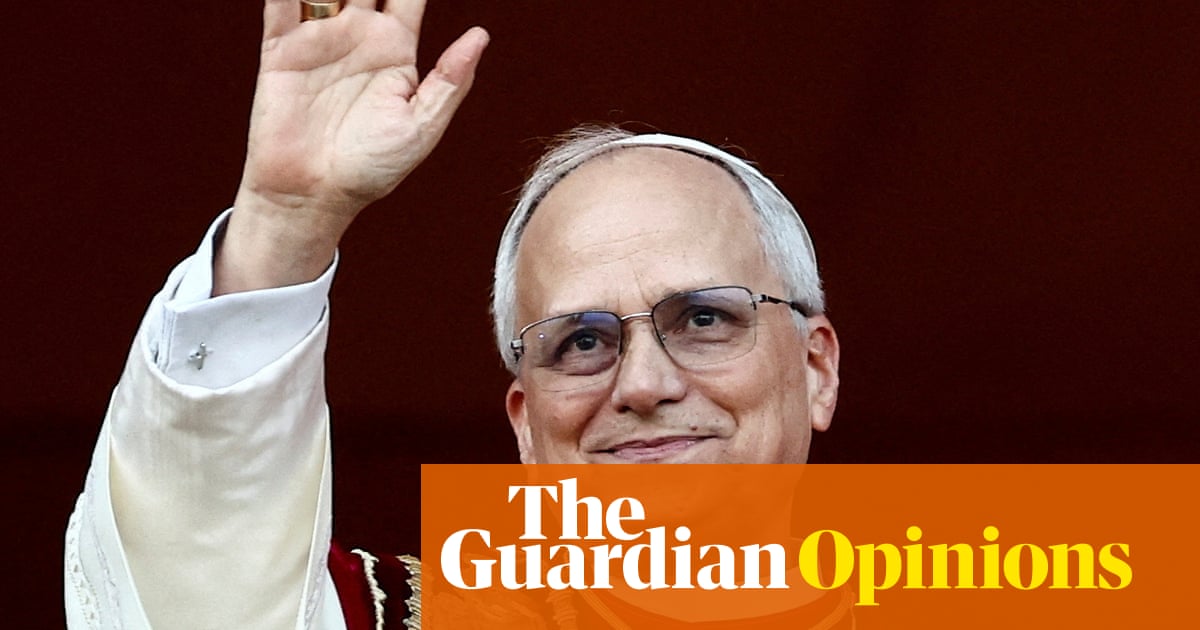Twelve years ago, in thewordsof the late Pope Francis, the Catholic church went “to the ends of the Earth” in its search for a new pontiff. On Thursday, after surprisingly brisk discussions, the most geographically diverse conclave in history went to the heart of a superpower to find his successor.
Theelectionof the first American pope is a remarkable moment. In part the cardinals’ choice of the Chicago-born Robert Prevost, now Pope Leo XIV, can be seen as a robust progressive response to the signs of the times. While senior Catholicfiguresaround Donald Trump prosecute an insular Maga agenda, the new pope is as at home in Latin America, having spent two decades working in one of the poorest regions of Peru. Previouspostson a social media account under his name suggest he shared Francis’switheringviews on the Trump administration’s draconian immigration policies.
In an era when the rise of nationalism risks undermining global responses to challenges such as migration and the climate emergency, the cardinals have chosen a pope who can, like Francis, act as a countervailing force. In choosing his papal name, Cardinal Prevost signalled an affinity with another forerunner,Leo XIII, who made social justice a key Catholic priority at the end of the 19th century. That such a voice should speak with an American accent, in the age of Trump, will send its own powerful and vital message to the world.
Within the church itself, traditionalist hopes of a post-Francis return to a more doctrinally rigid, hierarchical way of doing things appear to have been scotched. Though more moderate and diplomatic in manner, the new pontiff seems likely to stick to the reforming direction of travel set by his predecessor. In his previous job as head of the Vatican’s department for choosing bishops, Cardinal Prevost echoed Francis’s calls for clerical humility,observingthat “the bishop is not supposed to be a little prince sitting in his kingdom”. Similarly, the deliberately inclusive language of his Thursday eveningaddressin St Peter’s Square suggested that he will continue Francis’s “synodal” mission to open up ecclesiastical structures to greater lay influence.
For women in the church, that will hopefully mean a further rise in influence after the incrementalgainsof the last papacy. But amid ongoing divisions, there will be battles to come. As frustration mounts over the seemingly immovable veto on women’s ordination, Pope Leo is likely to find himself under pressure to speed up what he hasdescribedas the “slow process” of expanding female roles. And although he has expressed support for same-sex blessings, past denunciations of ‘“gender ideology” will generate unease among those won over by the warmth of Francis’s inclusive approach to LGBTQ+ people.
For progressive Catholics, how far and how fast Pope Leo is prepared to move on such matters – and on toughening up procedures for dealing with clerical sexual abuse – will be crucial. But despite fears that this conclave could take its own Trumpian turn and choose an inward-looking arch-conservative as the 267th pope, it opted instead for broad continuity with the compassionate, world-facing spirit of Francis’s groundbreaking papacy. For a world increasingly riven by great-power rivalry, and scarred by war and inequality, that is very welcome news.
Do you have an opinion on the issues raised in this article? If you would like to submit a response of up to 300 words by email to be considered for publication in ourletterssection, pleaseclick here.
